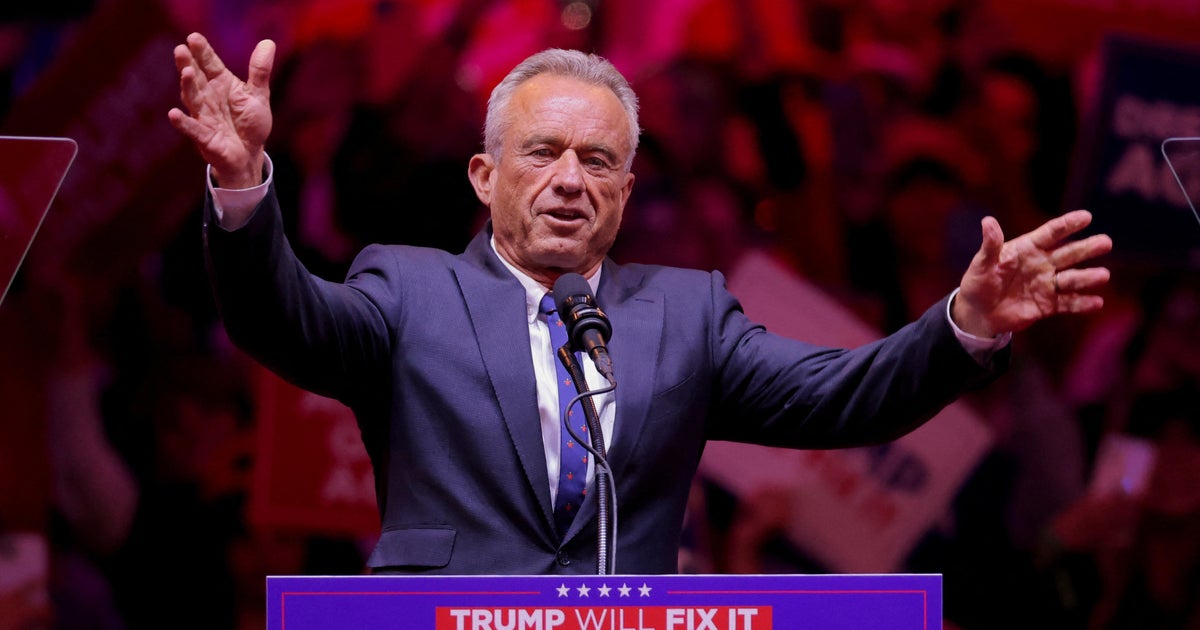Biden says U.S. will have enough COVID vaccine supply for all adults by end of May
President Biden on Tuesday announced the U.S. will have enough vaccine supply to cover all adults by the end of May, significantly sooner than his previous timeline of July. That's made possible because of the third vaccine by Johnson & Johnson, which is now available for emergency use and being shipped across the country.
The president announced a new partnership between competitors Johnson & Johnson and pharmaceutical giant Merck. The partnership, first reported by The Washington Post, will help Johnson & Johnson produce more of its single-shot vaccine that was authorized over the weekend for emergency use. Mr. Biden's end of May timeline doesn't mean all American adults will be vaccinated by then, as administering the shots will take longer.
"Two of the largest health care and pharmaceutical companies in the world that are usually competitors are working together on the vaccine," Mr. Biden said in a White House address Tuesday.
The president also announced his administration is directing states to prioritize vaccinating teachers, childcare workers and school staff through the administration's partnership with pharmacies. Mr. Biden said he wants all such educators and support staff to have at least one vaccine shot by the end of March.
A White House official told CBS News the Biden administration is "in close coordination with states across the country and expect that they will act quickly to implement this action," adding that the White House has "full authority to direct the vaccine supply the federal government is providing to states be distributed in accordance with our guidance."
The president also said he will use the Defense Production Act to accelerate the production of equipment, machinery and supplies.
Asked by a reporter when he thinks the U.S. will return to a version of normal, the president said he's been cautioned against answering that since it's not entirely known, but said he hopes the nation will return to normal by this time next year. That's later than the answer of Christmas he's given before to that question.
Johnson & Johnson began shipping out 4 million doses early Monday morning — 6 million less than it originally committed to having ready by the end of February. The company expects to deliver more than 20 million doses by the end of March, and 100 million by the end of June.
A senior administration official said Merck will dedicate two factories to filling and producing the Johnson & Johnson vaccine. This has the potential to dramatically increase the supply of the vaccine, though it could take a couple months to get the Merck production process going.
Merck pulled the plug on development of its own COVID-19 vaccines in January, following poor results in early-stage studies. The drugmaker said its potential vaccines were well tolerated by patients, but generated an inferior immune system response compared with competitors.
Johnson & Johnson's vaccine has been shown to provide 85% protection against severe COVID-19 by 28 days after vaccination. Among people who got the vaccine in clinical trials, there were no COVID-related deaths.
J&J's product is a single-dose vaccine, and could address one obstacle in distribution: Getting second doses in arms on time. It is the third vaccine to be approved in the U.S., joining those developed by Pfizer/BioNTech and Moderna, which both require a person to get two shots weeks apart.
Millions of Americans are not getting their second dose within the recommended time period for ensuring optimal protection from the virus, according to a CBS MoneyWatch review of CDC data. As of Wednesday, more than 2.8 million Americans who received their first shot — nearly 12% of those vaccinated — had not gotten their second dose within the 28-day interval prescribed for Moderna's vaccine.
Speaking on "CBS This Morning" on Monday, J&J CEO Alex Gorsky said of the single-dose vaccine, "That's 100 million people by the end of June can have one shot and be done. And so, we think that the convenience, the ease of logistics that's going to represent is significant, not only for our country but for people around the world."
— CBS News senior White House correspondent Weijia Jiang contributed to this report.



